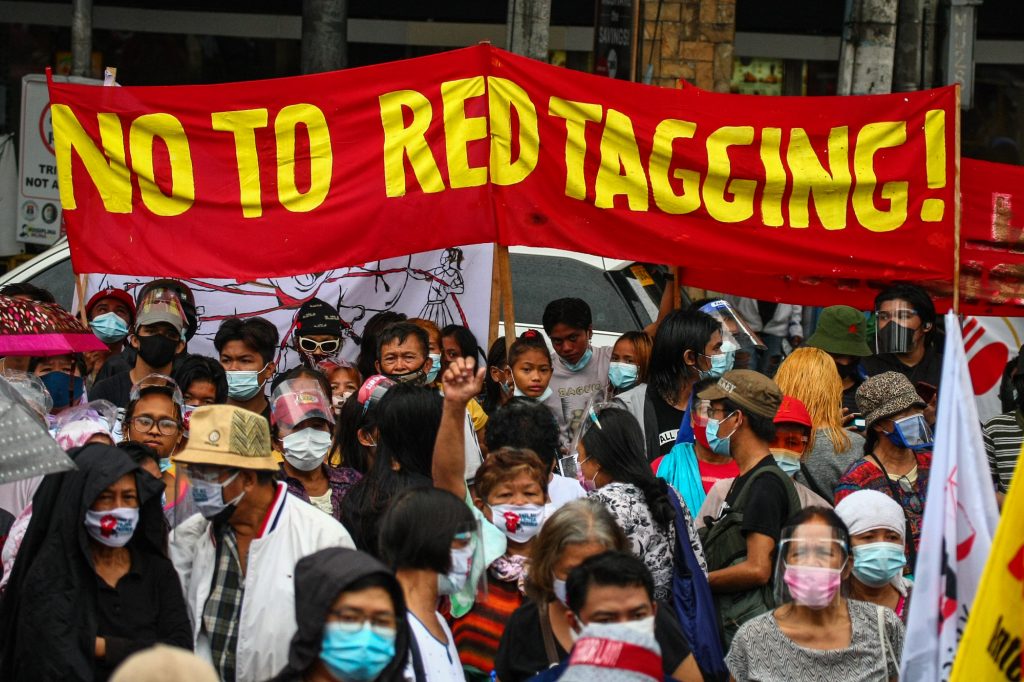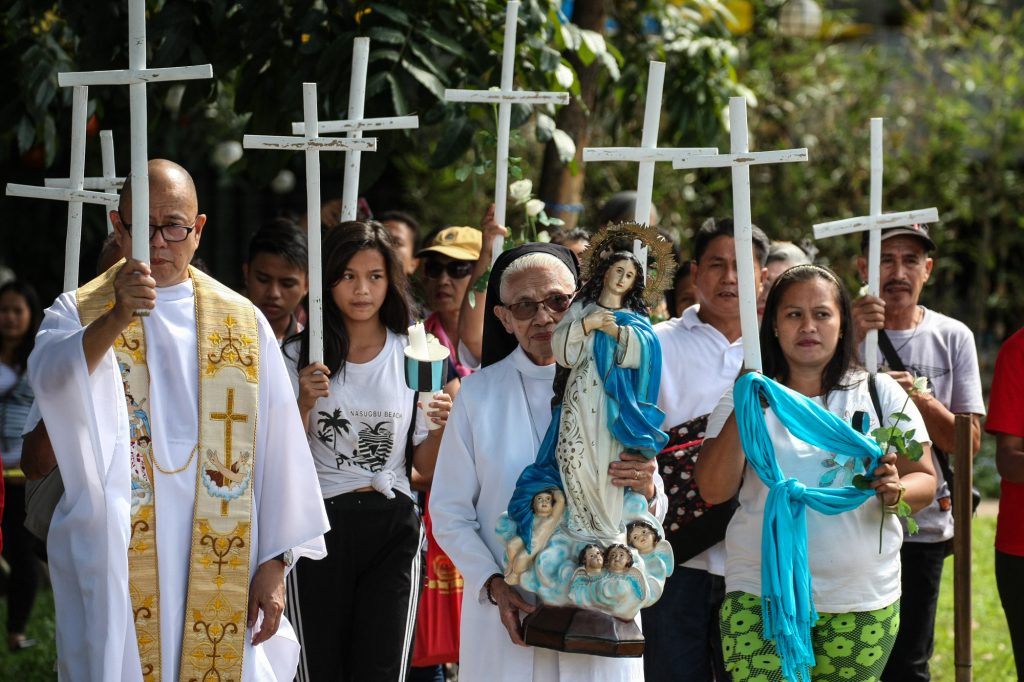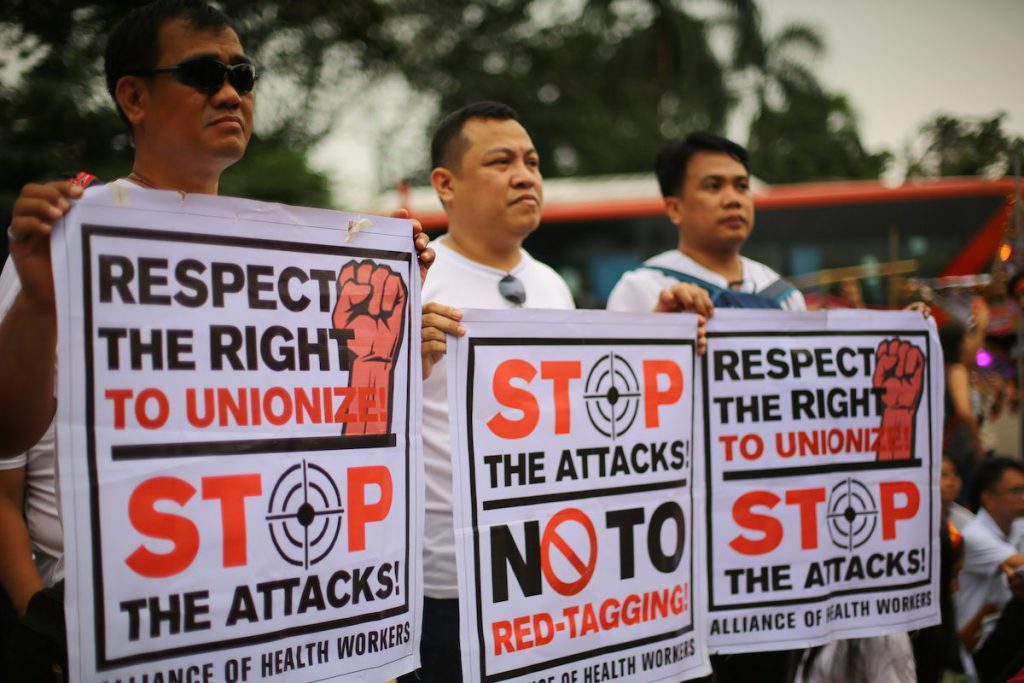
For weeks in November and December, Philippine state security officers regaled legislators with what they claimed were clear evidence of ties between legal dissenters and Asia’s longest-running communist insurgency.
Members of a group screaming to save Philippine youth from the clutches of “terrorists” begged the Senate and the House of Representatives for deliverance.
A few months earlier, the Justice Department had rebuffed the hysterical charges, dismissing attempts to pin an abduction case against Sarah Elago, a member of the Lower House of Congress representing the youth.
The Supreme Court likewise junked a petition for the issuance of writs of amparo and habeas corpus against the group Anakbayan by the parents of a 19-year old woman activist.
The Justices noted that there was no evidence of illegal confinement or detention. The supposed victim was not in hiding and she clearly rejected the petition ostensibly filed on her behalf.
The military’s star witness at the Senate hearings had spent months hurling chunks of fearsome allegations against leaders of the Movement Against Tyranny, a broad alliance of government critics.
But his credentials as a supposed member of the communist-led New People’s Army general command swiftly crumbled.
Hometown acquaintances pointed out that the man was busy teaching Korean students and wheeling and dealing with government officials at the time he was supposed to be conducting armed rebellion against the government.
Legislators didn’t even have to poke holes in these tall tales; the lies were so egregious, embarrassing lawmakers who had allowed their chambers to become theaters of disinformation.
Military officers and their paid mob swiftly poured out ire on doubting senators, calling them allies of terrorists. It was a repeat of their attempts to shut up the governor of Cavite province, just south of Manila, and the mayor of the country’s capital city, when they pushed back at tactics redolent of Nazi pogroms at the start of World War II.
Officials of the national task force created to end the communist insurgency, the Defense department and President Rodrigo Duterte’s intelligence coordinating council all defended the verbal lynching even while admitting that none of their claims would stand the scrutiny of courts.
Duterte then spelled out his gospel of injustice: The crime of one is the crime of all, never mind if there isn’t an iota of evidence. You are guilty because we say you are. Truth is what we say it is.

Lies in Duterte’s Philippines are deadly. More than 20,000 poor Filipinos have died in a “drug war” commanded by a leader who views due process, legal protocols, and scrutiny of facts as tantamount to aiding the enemy.
That enemy is whoever Duterte and his proxies say they are. Targets are drawn up from lists with no grounding in reality. The president has named long dead judges. The administration’s charges against jailed Senator Leila de Lima have been upended in court by state officials themselves. Duterte’s estimate of drug addiction numbers slides and twists according to his moods.
Drug war and activist killings are cut from the same cloth of tyranny. Demonize first. Duterte and his minions spit out lie after lie after lie, spread far and wide on social media and on ground with the fruits of a corrupt budget system replete with discretionary spending. Stir up a frenzy of fear and hate against targets and those who dare remind the state about “human rights.”
More than 350 activists, all rights defenders, have died under Duterte. Cristina Palabay, the secretary general of rights group Karapatan, said everyone of the slain had faced “red-tagging” on ground and on social media before the killers came for them.
Against dissenters, Duterte tried a strategy of isolation by throwing a quilt of falsehood against a broad array of groups. He had hoped that brazen attacks at anyone and everything would drive away the ostensibly more faint-hearted from a growing movement for accountability.
Global aid agencies, UN experts, international religious organizations, even foreign states were fair game for the falsehoods of the president and his thugs.
Nothing has dented the spirit of the country’s rights defenders. The government’s overreach only forced long-squabbling groups to gingerly stand side by side with each other. The pushback never flagged in his four and a half years of rule.

And now, a sliver of accountability has prompted all that frothing in the mouth and gnashing of teeth.
The United Nations High Commissioner for Human Rights came out with a withering report in June. Now, the International Criminal Court – Office of the Prosecutor’s has come out with its report on preliminary examination activities.
It is not a judgement. But the Office notes that available information on Duterte’s drug war indicate “a reasonable basis to believe that the crimes against humanity of murder, torture, infliction of serious physical injury and mental harm as other inhumane acts.”
The new report isn’t ground to staunch the killings, the arrests, the tortures, the disappearances under either the anti drug or anti-insurgency campaigns. But Duterte is learning a hard lesson he never did learn in his long years as mayor: There is a limit to what fear tactics can do.
It will get worse this month and in the months ahead for rights defenders as wounded beast slashes and claws at every shadow that moves. But those fighting for the fate of Philippine democracy can gain strength in seeing justice’s star rising on the horizon.
Inday Espina-Varona is an award-winning journalist in the Philippines. She is a recipient of the “Prize for Independence” of the Reporters Without Borders in 2018. The views expressed in this article are the opinions of the author and do not necessarily reflect the editorial stance of LiCAS.news.
Source: Licas Philippines
0 Comments